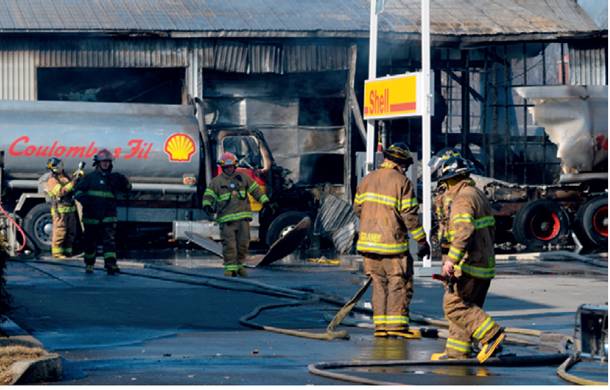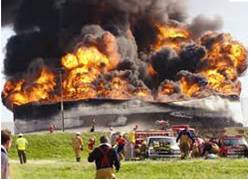
Incident Report Subject: Australia NSW Safety Alert - Switchloading when transferring flammable liquids Date of Email report: Sat 11/08/2012 Report Detail:
Risk controls The controls identified in this safety alert are not exhaustive and a number of measures could be integrated into a system of work to ensure risks associated with the transfer of dangerous goods are effectively controlled. The following are some of the control measures that should be considered to reduce the risks from the discharge of static electricity:
Read the full report here: Switchloading when Transferring Flammable Liquids Additional Documentation:
Many JOIFF members will remember the Glenpool event and particularly the issues of emergency response and failures in emergency planning An 80,000-barrel storage tank at ConocoPhillips Company’s Glenpool South tank farm in Glenpool, Oklahoma, exploded and burned as it was being filled with diesel. Gasoline had been removed from the tank earlier in the day. The resulting fire burned for about 21 hours and damaged two other storage tanks in the area. The cost of the accident was $2,357,483. There were no injuries or fatalities. Nearby residents were evacuated, and schools were closed for 2 days. The safety issues identified in this accident are tank operations, including switch loading, at the ConocoPhillips Company tank farm; the adequacy ofemergency planning and emergency response by ConocoPhillips and American Electric Power; and the adequacy of Federal regulations and industry standards foremergency planning.
|


